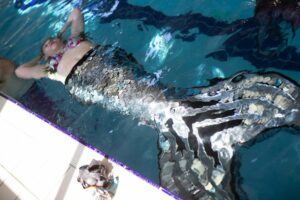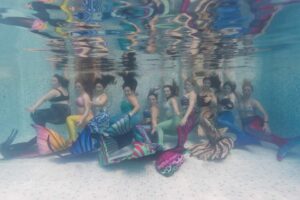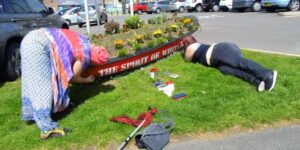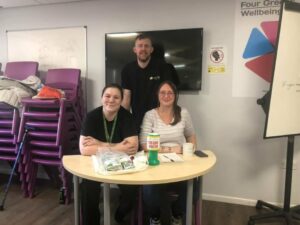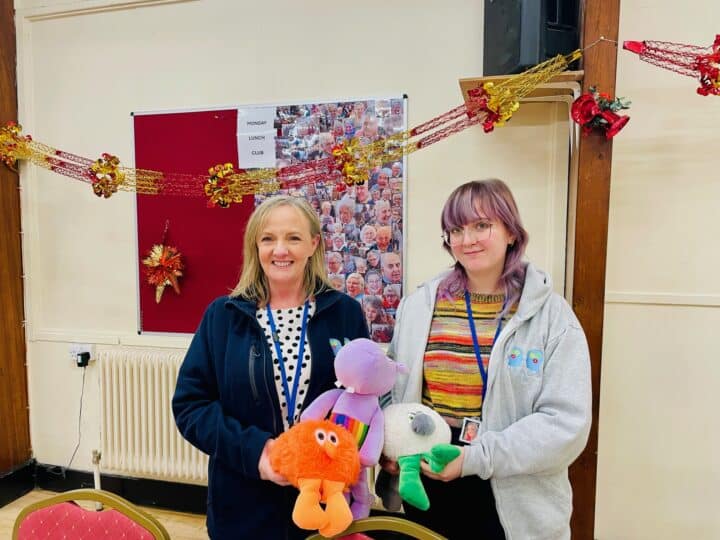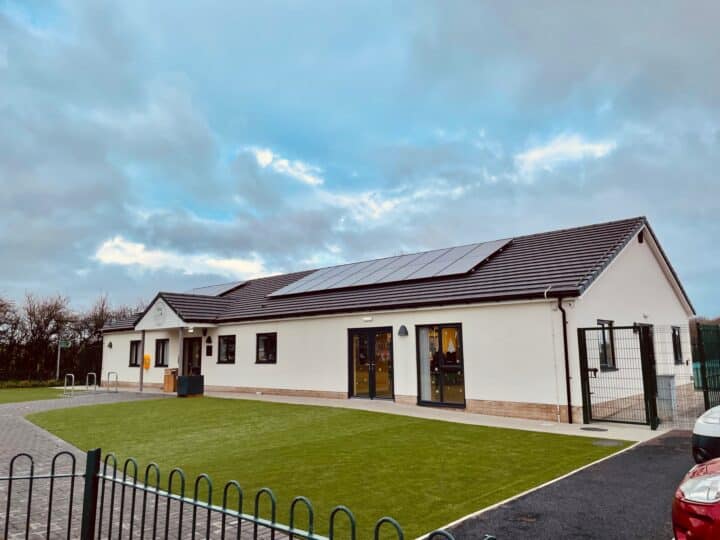-
About
About
Local Trust is a place-based funder supporting communities to achieve their ambitions.
Find out moreGo straight to…
< Back to main menu -
Big Local
Big Local
Big Local is an exciting opportunity for residents in 150 areas to create lasting change in their communities.
About the programme< Back to main menuSupport centre
Essential guidance, information and ideas for Big Local partnerships, to help you deliver change in your community.
Visit the support centre -
Other programmes
Other programmes
Find out how the principles of Big Local have inspired other programmes creating change in local communities.
< Back to main menuCommunity Leadership Academy
Supporting volunteers involved in Big Local projects to develop their skills and knowledge.
Find out moreCreative Civic Change
This new approach to funding enabled communities to use art and creativity to make positive local change.
Find out more
-
News and stories
News and stories
The latest news and stories from Big Local areas and beyond, exploring community power and resident-led change.
ExploreGo straight to…
< Back to main menuVoices of Big Local
Inspiring stories from the people making change happen in their communities.
Read more - Insights
- Policy

-
About
About
Local Trust is a place-based funder supporting communities to achieve their ambitions.
Find out moreGo straight to…
< Back to main menu -
Big Local
Big Local
Big Local is an exciting opportunity for residents in 150 areas to create lasting change in their communities.
About the programme< Back to main menuSupport centre
Essential guidance, information and ideas for Big Local partnerships, to help you deliver change in your community.
Visit the support centre -
Other programmes
Other programmes
Find out how the principles of Big Local have inspired other programmes creating change in local communities.
< Back to main menuCommunity Leadership Academy
Supporting volunteers involved in Big Local projects to develop their skills and knowledge.
Find out moreCreative Civic Change
This new approach to funding enabled communities to use art and creativity to make positive local change.
Find out more -
News and stories
News and stories
The latest news and stories from Big Local areas and beyond, exploring community power and resident-led change.
ExploreGo straight to…
< Back to main menuVoices of Big Local
Inspiring stories from the people making change happen in their communities.
Read more - Insights
- Policy
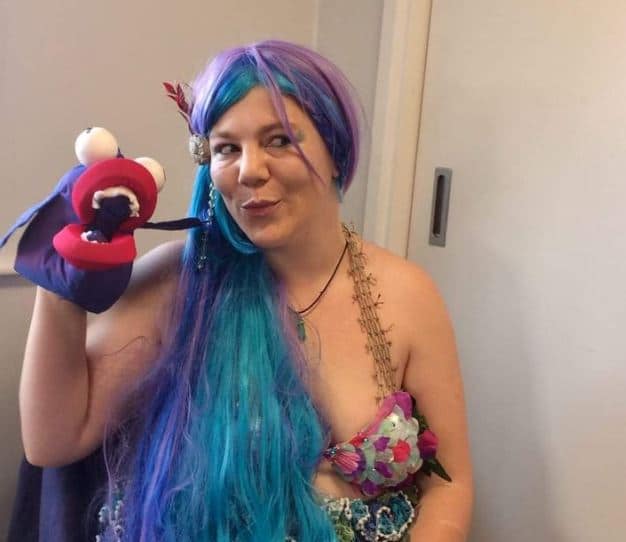
Just keep swimming: the Mayflower Mermaid of Whitleigh
Our journalist-at-large, Harriet Marsden, spoke to Becky in Whitleigh, also known as the Plymouth Mayflower Mermaid about community activism and performing as a mermaid to raise money for charity.
“I always had this childhood dream of being a mermaid…”
Rebecca ‘Becky’ Allen was told she’d never amount to anything. But as well as a community activist in Whitleigh Big Local, national performer and mother of three, Becky has also transformed herself into a mythical creature. She’s known as the Plymouth Mayflower Mermaid.
Becky regularly dons an elaborate fishscale tail, shimmering makeup and mermaid accessories, and takes to the ocean – or local swimming pool, when they allow. Rather than luring far-off sailors to their doom, Becky instead performs to raise money for her community projects or simply splashes about with her merfolk friends, to the delight of watching children. And she’s not the only one. All over the UK, the number of women – and some men – who adopt a ‘mer-sona’ and half-fish costume is growing.
Becky, 32, has even represented her adopted city in the ‘Miss Mermaid UK’ pageant competition – the first competitor from Plymouth. (For anyone who wonders what a mermaid contest entails, “it’s basically like a normal pageant”, Becky says. You have your modelling round – underwater – as well as a lake-swimming competition to see who can hold their breath the longest, and then of course, a swimsuit round.
Prizes include a free tail, a one-year contract with Hire a Mermaid UK and a trip to Egypt to represent the UK in the Miss Mermaid International.)
Plymouth, a seaside town with significant maritime history, is becoming a beacon to attract mermaids. There is now a group of about 30 regulars – although there have been battles with the local pools. “My fins aren’t generally allowed,” explains Becky, “because of their size.” She has to get out of town to Chudley or Ivybridge to stretch her tail, or head out to swim in the ocean.
They’re so welcoming. This little group lifted me, helped me, and supported me.”
What makes the group special, Becky says, is that it’s open to every type of person, from any background. Becky was also heartened to learn that there are many disabled mermaids performing in the UK. “And they’re so welcoming. This little group lifted me, helped me, and supported me.”
More than anything, she enthuses, the group is non-judgmental. “No matter what you’ve got going on, you can guarantee one of the mermaids is going to be there, saying, ‘You can do this. Come on, just keep swimming.’”
The thing that makes mermaids special, Becky says, “is throughout history, we see them being represented in every culture throughout the globe. So there’s still that kind of mysticism to say, do they exist or do they not? No one can say that they don’t.”
As a child, Becky was fascinated by The Little Mermaid, and by the ocean in general. She taught herself to swim, by “a lot of trial and error”, and nearly drowned in the process. Perhaps, she admits, she sought refuge in her imagination to escape the reality of her childhood. Becky was raised in the small town of Kingsbridge in what she describes as a “dysfunctional” home. Social workers might instead describe it as abusive – although at the time, Becky says, “I told school and social services and the police, and nobody would pay any attention or support me. I was badly failed by the system.”
Oh my god, these are my people. My people are here.”
Becky’s mother was also herself a victim of domestic abuse: a worsening cycle of violent partners and toxic behaviours. Things only grew worse when the family moved to Plymouth, when Becky was nine. Bullied and belittled by her mother, taunted by her peers at school, Becky reached a point when she’d had enough, and walked out the door. She was only 12. For a few years, she alternated between friends’ sofas and the cold night streets – until she finally secured a flat in Whitleigh, a fairy-like forested enclave overlooking North Plymouth. “When I moved here, my first thought was: this is absolutely beautiful.” It was also near enough to the sea to be perfect for a mythical mermaid.
Due to her disability, Becky increasingly struggled with mobility issues. She was prescribed hydrotherapy and began swimming regularly, feeling her limbs ease and uncurl in the water. “It’s a form of therapy for me,” she says, both physical and emotional. She kept herself to herself at first, but as her mobility grew, so too did her confidence as a performer. She felt herself becoming stronger in the quiet greenery.
Out of the blue, as it were, Becky started speaking to a girl who worked as a professional mermaid. They began chatting, and her new friend told her about the existence of Merfolk UK – a national shoal of professional and amateur mermaids and mermen. Even now, Becky’s face brightens when she remembers how it felt to discover that there was this whole underground – or underwater – merfolk culture in the UK. “I thought, ‘Oh my god, these are my people. My people are here.’”
The group would become her new family, but it was performing in a mermaid’s tail that helped Becky find her feet in her new home. In 2017, Whitleigh Big Local community development worker Pippa Cooper saw a mermaid in a nylon fish-scale tail, shivering by a hot tub outside Porkies Cafe. A couple of years later, Becky showed up at a Big Local partnership meeting to talk to Pippa, full of nervous enthusiasm for her adopted neighbourhood and for environmental activism in general.
I first met Becky in her ‘civilian’ clothes, now a community activist in Whitleigh’s Big Local hub. “Whitleigh has become my home and my passion,” she says. “Being a mermaid makes me push myself. It’s helped me with my job a lot.”
Becky Mermaid has now been in tails for seven years, a certified level 2 freediver and attendee of ‘Mermaid Camp’. When Becky is out there in the surf, just off the beaches of Bovisands or Wembur, she’s as captivating as a real mermaid might be. Becky tells me that her ‘mer-sona’ is “cheekier” than her usual activist self. “It definitely gives me a little bit more confidence. I’m happy to splash your child.”
She has brought more newcomers into the merfolk group’s embrace, who in turn have grown in confidence and gone off to indoctrinate others. “It’s about supporting the general community,” Becky explains, “but also showing people that even as an adult, you can be a little bit weird and a bit abnormal. Because the day-to-day is boring.”
Her daughter, now six, is “completely besotted” with her mother’s work, and can’t wait to get her own tail.
People approach her in the area, asking her whether she’s the Whitleigh mermaid. And Becky uses that as a conversation starter, to tell them about her community work for Big Local and other projects. She has set up a community circus arts group, volunteers at the food bank and regularly helps out with litter picking and art events. During the pandemic, despite struggling with her mental and physical health after another operation, she also went door-to-door with food parcels and medicine deliveries.
“I’ve always been quite political,” she says. “I’ve always been sort of aware of what’s going on in the world, and from my background of being homeless, I wanted to just give back a bit. I’ve received so much support over the years, and I’ve always been helping my friends, but now I can do it in an official capacity.”
Becky runs the community larder, which allows families on low incomes to buy groceries at reduced prices rather than rely on food banks.
Her daughter, now six, is “completely besotted” with her mother’s work, and can’t wait to get her own tail. Becky’s two sons and partner are also extremely supportive. Becky says: “I couldn’t imagine living anywhere else.”
This June, all the mermaids of the UK will gather together in Plymouth and aim to set a world record for most merfolk in one place. For her, says Becky, “It’s fulfilling a childhood dream.”
Harriet is Local Trust’s journalist at large. She is travelling the country meeting communities in Big Local areas and writing about their stories.
If your Big Local has a story to share, a project you’re keen for Harriet to come and see, or if you just want to say hi and have a chat, get in touch via email or Twitter.
Our new website that shares our learning from the Big Local programme is now live
Our new website that shares our learning from the Big Local programme is now live
